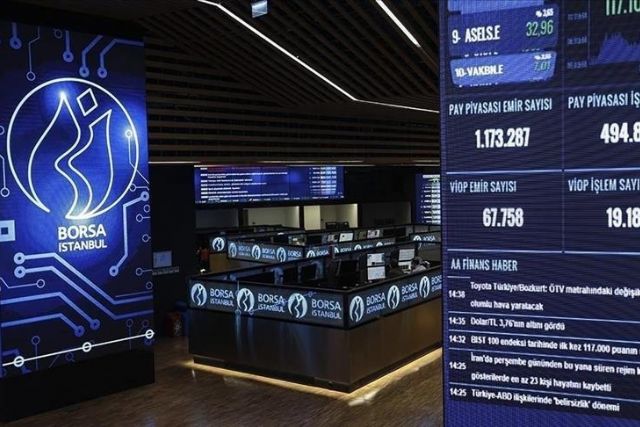Serbia opens fast lane for goods at borders with N.Macedonia, Albania
Open Balkans initiative aims to boost goods, services flows, create single labor market, improve business conditions, says official

BELGRADE, Serbia
Serbia on Thursday opened a special section at its border gates for commercial vehicles under the Open Balkans initiative for a joint economic area in the Western Balkans.
The move is meant to allow for an easier and faster flow of goods from Albania and North Macedonia, the other two countries engaged in the initiative for a common economic and political zone.
Open Balkans aims to provide greater trade and student exchange opportunities for an estimated total population of almost 12 million people, as well as to encourage the member countries' EU integration.
Serbia's Minister of Finance Sinisa Mali said the initiative aims to accelerate the flow of goods and services, among other things.
"Open Balkans aims significantly to accelerate the flow of goods and services, create a single labor market and better business conditions for companies, which will inevitably lead to faster economic development and higher living standards for the citizens of the signatory countries to the agreement," said Mali.
An "Open Balkans" sign was placed on the entrance to Serbia's North Macedonia border crossing, Presevo-Tabanovce.
The sign designates a lane for the carriers of designated companies, or Authorized Business Entities (AEO), from Albania, North Macedonia, and Serbia.
Mali said the initiative would be important for strengthening regional cooperation and the three countries' economies.
The Open Balkans agreement also provides a single work permit for Serbia, North Macedonia, and Albania, making the region more appealing to investors.
Previously called a "Mini Schengen," the initiative was launched by the leaders of the three nations in October 2019 for regional freedom of movement and free movement of goods, capital, and services.
The initiative's primary goal is to make existing regional efforts more effective in order to achieve practical and visible results for the Western Balkans.
It aims to lead to the establishment of a common regional market, which, as a transitional form, will bring the region closer to the EU and accelerate their path to full membership.





